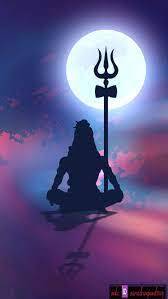The month of SHRAVAN (SAWAN) -2023

Sawan also known as Shravan is a significant month for Hindu religion and is associated with various religious and spiritual observances. It usually falls in the month of July and August, according to Hindu calender. Devotees often observe fasting, perform rituals, and offer prayers to Lord Shiva during this month.
Here are some significant rituals followed by people during the month of Sawan.
Devotion to Lord Shiva:
Sawan is considered an auspicious month dedicated to Lord Shiva, one of the principal deities in Hinduism. Devotees engage in various religious practices, such as fasting, offering prayers, and visiting Shiva temples during this period.
Fasting:
Many individuals observe fasting during Sawan as an act of devotion. They abstain from consuming non-vegetarian food and certain other food items, often limiting their diet to fruits, milk, and vegetarian meals.
Kanwar Yatra:
One of the prominent events during Sawan is the Kanwar Yatra. Devotees, known as Kanwariyas, undertake a pilgrimage to sacred rivers, especially the Ganges (Ganga), to collect holy water. They carry decorated poles (Kanwars) on their shoulders and offer the holy water to Lord Shiva in their local temples.
Rudrabhishek:
Rudrabhishek is a special ritual performed during Sawan to worship Lord Shiva. It involves the pouring of milk, water, or other sacred substances over a Shiva Linga while chanting Vedic mantras and prayers.
Festive Celebrations:
Sawan is marked by various celebrations and cultural activities. Temples are beautifully decorated, and special programs, devotional music, and dance performances are organized to honour Lord Shiva. Many devotees participate in Bhajan-Kirtan (devotional singing) gatherings and engage in spiritual discourses. Hindus consider this month to be auspicious, and throughout it, they worship Lord Shiva and Maa Parvati.
According to Dharmikshree, every Monday, followers of Lord Shiva observe a fast (Sawan Somwar) and offer him various offerings, including panchamrit, jaggery, bhuna chana, bel patra, dhatoora, milk, rice, and chandan.
Every Tuesday during this holy month, the Mangala Gauri Vrat, a fast for Mata Parvati, is celebrated. According to legend, Lord Shiva swallowed poison through Samudra Manthan in order to obtain amrit (nectar) for rescuing the world; however, Goddess Parvati reached for his neck and prevented him from ingesting the poison, causing Lord Shiva greater suffering and harm.
This year Shravan has begun from 4th July and will continue till August 31. This is a very rare and special occurrence which has taken place after 19 years.
What to offer Shivji this Sawan:
- Financial troubles: One should offer rice grains to overcome financial troubles.
- Married life: Offer saffron to get your desired partner and for a happy married life.
- Child bearing: wheat grains should be offered to conceive child.
- Relationships: offering honey can increase happiness and prosperity in life and there will be sweetness in relationships.
- Health: Manifest good health free from diseases by offering milk.
Every Monday (Somvaar) in the month of Shravan holds special significance.
Let's know what to offer to Lord Shiva, according to Dharmikshree these days.
- 10th July: Rice grain will help one to have wealth in their life.
- 17th July: Sesame seed or Til which destroys all the vices and sins.
- 21st July: Offering jau will increase prosperity in your life.
- 28th August: Moong as your offering to lord shiva gives you child related happiness.



